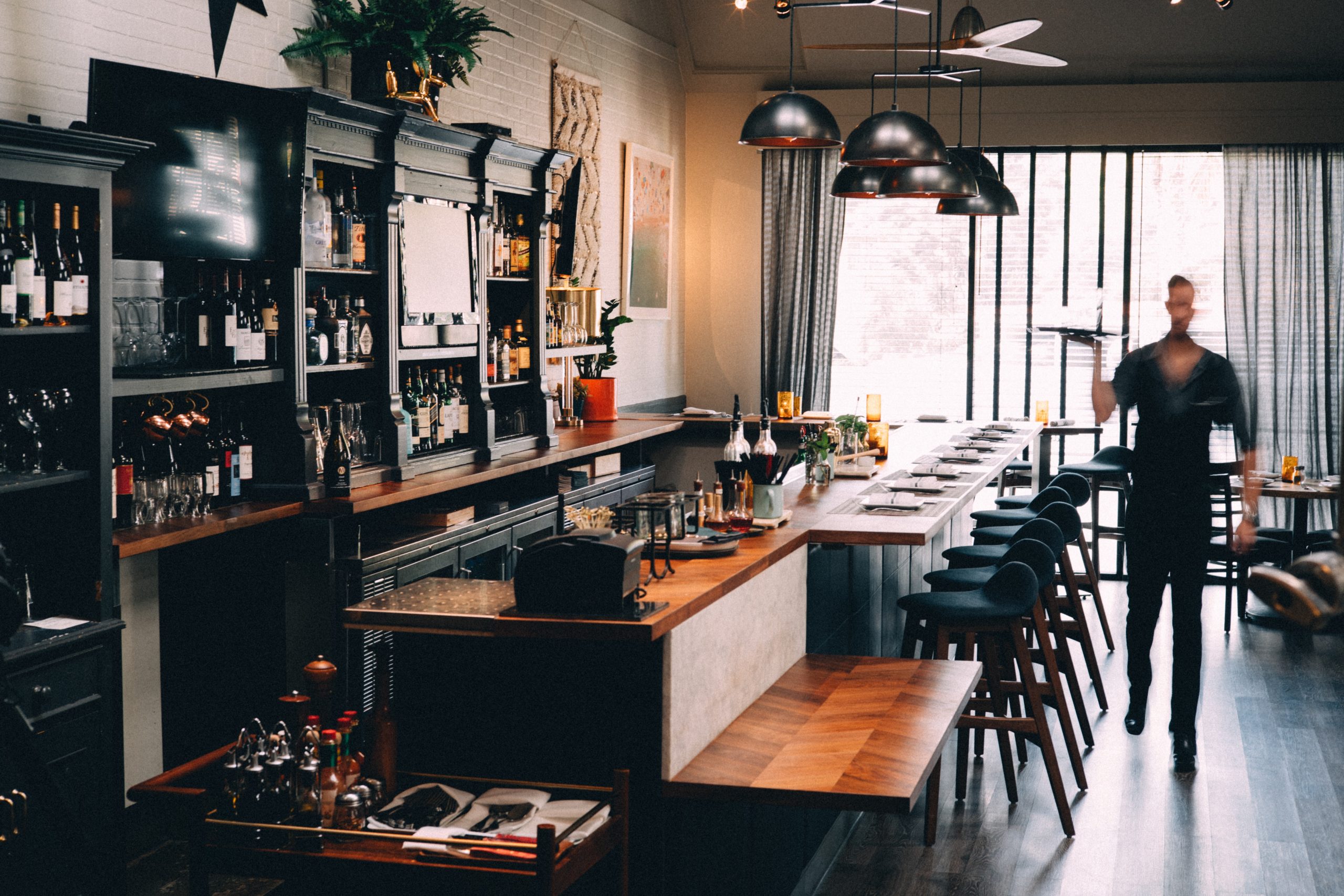Floor Managers: Dining Success Guide
In the ever-evolving realm of restaurant management, the position of Assistant Manager (AM) and Floor Manager on the restaurant floor is pivotal. It’s not just about overseeing operations; it’s about ensuring a memorable dining experience for your customers. In this article, we look into the critical responsibilities of a Floor Manager and how they contribute to a restaurant’s success.
Essential Duties Of An AM Floor Manager
Exceptional Customer Service
In the world of restaurant management, the quality of customer service plays a central role in determining the success of an establishment. The Floor Manager is the first defence line to ensure customers have a memorable and satisfying dining experience. Let’s delve deeper into this critical aspect:
1.1 Greeting and Interacting with Customers
Floor Managers are the welcoming face of the restaurant. As patrons enter, these managers extend a warm and sincere greeting, setting the tone for the entire visit. The initial interaction creates a sense of belonging and comfort, making customers feel valued when they enter the door.
1.2 Meeting Customer Needs Promptly
Beyond a warm greeting, Floor Managers are astute in observing and anticipating customers’ needs. They pay attention to details, such as checking if a table is comfortable, if the lighting is adequate, or if the temperature is to the customers’ liking. This proactive approach ensures that diners are satisfied and their needs are addressed promptly, enhancing their overall dining experience.
1.3 Addressing Customer Concerns
In customer service, addressing concerns is as crucial as providing a warm welcome. Floor Managers are skilled in conflict resolution and problem-solving. They listen actively to any complaints or concerns that customers may have, offering empathetic and practical solutions. By resolving issues satisfactorily, they can turn a potentially harmful experience into a positive one, leaving customers with a favourable impression.
1.4 Building Customer Loyalty
The personal attention and exceptional service Floor Managers provide are pivotal in building customer loyalty. When diners feel valued and appreciated, they are more likely to return to the restaurant. Loyal customers become regulars and often act as brand advocates, spreading positive word-of-mouth and leaving glowing reviews online. This loyalty has a significant impact on the restaurant’s long-term success.
The role of a Floor Manager in providing exceptional customer service cannot be overstated. Their ability to greet, interact, anticipate needs, and address concerns effectively elevates the dining experience. It’s not just about serving food; it’s about creating lasting memories and fostering customer loyalty, which, in turn, contributes to the restaurant’s ongoing success.

Staff Supervision and Training
The performance of the staff is paramount when it comes to shaping a restaurant’s reputation. Floor Managers assume a pivotal role in this aspect, as they are responsible for both supervising and training the team. Here, we delve into the multi-faceted dimensions of their role:
2.1 Ensuring a Consistent Dining Experience
Consistency in service is a hallmark of a successful restaurant. Floor Managers are entrusted with ensuring every guest receives the same high-quality experience. This entails meticulously supervising the staff to adhere to the restaurant’s established service standards. By doing so, Floor Managers play a crucial role in maintaining and enhancing the restaurant’s reputation for excellence.
2.2 Menu Familiarity and Special Promotions
Diners often have questions about the menu, whether it’s about ingredients, dietary restrictions, or personal preferences. Floor Managers must ensure that their staff is well-versed in the intricacies of the menu. They provide training and guidance, ensuring the staff can answer customer queries accurately and recommend dishes based on individual preferences. Additionally, Floor Managers inform the team about ongoing special promotions, enabling them to promote these offers effectively.
2.3 Ongoing Training Sessions
Floor Managers regularly hold training sessions to ensure the service remains top-notch. These sessions are for more than just new staff; even the existing team participates. They cover various topics like how to treat customers, updates to the menu, managing busy times, and dealing with unexpected problems. This ongoing training fosters a culture of continuous improvement, ensuring that the staff remains well-prepared to meet the demands of the industry.
2.4 Identifying and Addressing Performance Gaps
Floor Managers have a keen eye for performance. They regularly evaluate staff members to identify areas where improvement is needed. Whether refining customer interaction, addressing time management issues, or enhancing teamwork, Floor Managers provide constructive feedback and mentorship. This proactive approach helps staff members grow and contribute positively to the restaurant’s success.
Operational Efficiency
In the intricate space of restaurant management, operational efficiency is the rhythm that sets the tempo for success. AM Floor Managers are instrumental in orchestrating this symphony of precision.
Floor Managers play a vital role in ensuring the restaurant operates smoothly. They oversee different aspects of the restaurant to ensure everything runs well, like a finely-tuned machine.
3.1 Seating Arrangements and Customer Flow
The first step in optimising operational efficiency is managing seating arrangements. Floor Managers must balance accommodating arriving guests and ensuring that tables turn over efficiently. They consider table size, customer preferences, and reservations, ensuring every guest is on time. This strategic seating management maximises the restaurant’s capacity and minimises wait times, enhancing the overall customer experience.
3.2 Timely Order Delivery
Getting food to the customers on time is essential for the restaurant to work well. Floor Managers work closely with the kitchen staff to ensure orders are prepared and sent out quickly. This coordination guarantees that customers receive their meals while they’re at their most delicious and that the overall dining experience remains smooth and enjoyable.
3.3 Quality Control in the Kitchen
The kitchen is the heart of any restaurant, and Floor Managers are responsible for watching its operations. They monitor food preparation, presentation, and quality. Any deviations from the restaurant’s standards are promptly addressed, ensuring that the dishes leaving the kitchen consistently meet or exceed customer expectations. This meticulous oversight contributes to the restaurant’s reputation for excellence.
3.4 Crisis Management and Adaptability
The restaurant industry has challenges, and unforeseen situations can arise. Floor Managers are well-prepared to handle crises, whether an unexpectedly large influx of customers, a staff shortage, or a technical issue. Their ability to adapt to these challenges and make swift, well-informed decisions is invaluable in maintaining operational efficiency.
The Floor Manager ensuring operational efficiency is multi-faceted and pivotal. They meticulously manage seating, coordinate with the kitchen, and maintain a well-oiled operation. This commitment to efficiency enhances the customer experience and upholds the restaurant’s reputation as a place of quality and consistency.

Conflict Resolution
In the dynamic world of customer service, conflict resolution is a vital skill. Floor Managers are well-versed in de-escalation techniques and conflict resolution, making them indispensable in handling customer complaints and disputes. Here, we delve into the essential aspects of their role:
4.1 De-Escalation Techniques
Floor Managers are trained to recognise signs of customer conflict and stress. By practising de-escalation techniques, they can diffuse tense situations and prevent them from escalating further. The ability to approach a disgruntled customer calmly, empathetically, and professionally is crucial. Floor Managers create a conducive atmosphere for resolution by demonstrating a willingness to listen and address concerns.
4.2 Handling Customer Complaints
Customer complaints can take various forms, from food quality issues to service-related concerns. Floor Managers act as the first line of response to these complaints. They actively listen to the customer’s grievances, demonstrating a sincere commitment to addressing their concerns. By promptly acknowledging the issue and offering solutions, they aim to turn negative experiences into positive ones. This proactive approach resolves immediate issues and fosters customer goodwill and loyalty.
4.3 Dispute Resolution
In some cases, conflicts may escalate to disputes. Floor Managers have the skills to mediate customer disputes, ensuring a fair and amicable resolution. Their ability to remain impartial, calm, and solution-oriented is pivotal in finding common ground and maintaining a harmonious dining environment.
4.4 Protecting the Restaurant’s Reputation
The role of Floor Managers in conflict resolution goes beyond individual interactions. They safeguard the restaurant’s reputation by effectively resolving customer complaints and disputes. Favourable solutions and satisfied customers are likelier to leave good reviews and continue patronising the establishment. Conversely, unresolved conflicts can lead to negative word-of-mouth, harming a restaurant’s image.
Floor Manager’s de-escalation techniques, handling of complaints, and dispute-resolution abilities contribute significantly to the overall customer experience. Their commitment to turning negative situations into positive ones addresses immediate concerns and ensures the restaurant’s continued success and positive reputation.
Related articles:
What Is The Most Important Thing Restaurant Managers Should Consider When Choosing A Food Vendor
What Is The Role Of A Restaurant Manager
Inventory and Stock Management
Adequate inventory and stock management are pillars of success in the intricate realm of restaurant operations. Floor Managers ensure the restaurant is well-stocked and equipped to meet customer demand. Here’s a detailed exploration of this crucial role:
5.1 Maintaining Optimal Inventory Levels
Floor Managers play a pivotal role in maintaining optimal inventory levels. This involves monitoring the stock of ingredients, supplies, and equipment that the restaurant uses daily. They ensure that the restaurant operates efficiently by balancing keeping enough stock on hand and avoiding wastage. Overstocking can lead to increased carrying costs while understocking can result in service disruptions and unhappy customers.
5.2 Placing Orders and Restocking
One of the core responsibilities of a Floor Manager is placing orders for inventory restocking. They must closely monitor stock levels and anticipate when to reorder to prevent shortages. Whether ordering fresh produce, kitchen utensils, or beverages, they must comprehensively understand the restaurant’s consumption patterns. Timely orders and accurate restocking ensure the kitchen is well-prepared to meet customer demands.
5.3 Cost Control
Inventory and stock management are closely tied to cost control. Floor Managers must be diligent in minimising wastage and spoilage. This not only helps to maintain a balanced budget but also reduces the environmental impact. By efficiently managing inventory, they contribute to the restaurant’s sustainability and profitability.
5.4 Preventing Shortages During Peak Hours
One of the most critical aspects of this role is preventing shortages during peak operating hours. Running out of essential ingredients or supplies can lead to a chaotic and disappointing dining experience. Floor Managers maintain a keen eye on stock levels throughout the day, ensuring that the kitchen always has what it needs to provide a seamless service. This proactive approach is vital in safeguarding the restaurant’s reputation and customer satisfaction.
5.5 Inventory Technology and Reporting
In today’s digital age, Floor Managers often utilise inventory management software and reporting tools. These technologies help track inventory levels, generate reports, and make data-driven decisions. By leveraging technology, Floor Managers can enhance the accuracy and efficiency of their stock management practices.
The Floor Manager’s inventory and stock management is instrumental in ensuring the smooth operation of a restaurant. Their responsibilities encompass maintaining optimal inventory levels, placing orders, and preventing shortages during peak hours. This diligence contributes to operational efficiency and safeguards the restaurant’s reputation and profitability.

Health and Safety Compliance
The restaurant industry cannot overstate the paramount importance of adhering to health and safety regulations. Floor Managers are responsible for ensuring the restaurant complies with these regulations. Their role encompasses a wide array of tasks to guarantee the safety and well-being of both customers and staff:
6.1 Hygiene and Cleanliness Oversight
The cleanliness and hygiene of a restaurant are not merely about aesthetics; they are integral to maintaining a healthy and safe dining environment. Floor Managers take charge of supervising and maintaining the cleanliness of the dining area, kitchen, and restrooms. This includes regular inspections to ensure all areas meet or exceed the required cleanliness standards.
6.2 Food Safety Protocols
Food safety is of paramount importance in a restaurant. Floor Managers ensure the kitchen staff strictly adhere to food safety protocols. This includes proper handling, storage, and cooking to prevent contamination and foodborne illnesses. Maintaining these stringent standards protects both customers and the restaurant’s reputation.
6.3 Staff Training in Safety Protocols
One of the critical responsibilities of Floor Managers is to provide ongoing training to the staff regarding safety protocols. This includes instructing them on correctly using equipment, handling potentially hazardous substances, and first aid procedures. By ensuring that the team is well-informed and trained, Floor Managers reduce the risk of accidents and provide a safe working environment.
6.4 Emergency Preparedness
In an emergency, such as a fire or medical issue, Floor Managers are trained to act swiftly and effectively. They coordinate evacuation procedures and first aid responses. Getting ready for unexpected situations is very important to keep everyone – both customers and staff – safe and well.
6.5 Regulatory Compliance
Restaurants are subject to various health and safety regulations, varying by location. Floor Managers are responsible for staying current with these regulations and ensuring the restaurant complies with all legal requirements. This involves periodic inspections and documentation to prove compliance.
The Floor Manager’s health and safety compliance responsibilities are multi-faceted and essential. It encompasses maintaining hygiene and cleanliness, enforcing food safety protocols, training staff, and preparing for emergencies. By diligently adhering to these standards and ensuring regulatory compliance, they contribute to a safe and welcoming environment for customers and staff while protecting the restaurant’s reputation.
Conclusion
We’ve shed light on the multi-faceted role of Floor Managers and the critical functions they perform within the restaurant industry. We have aimed to provide valuable insights for restaurant owners seeking to optimise their operations and aspiring Floor Managers looking to excel in their roles.
The depth of information presented in this article, complemented by keyword-rich titles and visually engaging markdown-formatted diagrams where applicable, combines to create a well-rounded and informative piece. This holistic approach helps your website rank well on search engines and establishes it as a go-to destination for anyone seeking knowledge in this domain.
The role of a Floor Manager is undeniably pivotal for the seamless functioning of a restaurant. Their responsibilities span from ensuring exceptional customer service to upholding health and safety standards. It highlights the significance of this role in maintaining customer satisfaction and overall success in the restaurant industry.
FAQ
What does a restaurant manager do?
A restaurant manager’s role encompasses overseeing a restaurant’s day-to-day operations. They manage staff, ensure customer satisfaction, maintain quality and cleanliness, and optimise overall efficiency.
Is a floor manager a supervisor?
Absolutely, a floor manager is a supervisor. They look after everything happening on the restaurant floor, which means they manage the staff, ensure customers are treated well, and keep things running smoothly.
How much does a floor manager earn?
The salary of a floor manager can vary based on factors like location, restaurant type, and experience. On average, in the United States, floor managers can earn around $40,000 to $60,000 per year. However, specific earnings may differ based on individual circumstances.
What qualifications do I need to be a floor manager?
To become a floor manager, you typically need a high school diploma or equivalent. While formal education beyond high school is only sometimes required, having a degree in hospitality or a related field can be advantageous. In addition to teaching, relevant work experience, strong leadership skills, and the ability to handle customer service are essential for this role.
How much do McDonald’s floor managers make in the UK?
The salary of a McDonald’s floor manager in the UK can vary based on location and experience. Their average earnings typically range from £20,000 to £30,000 per year. However, these figures may change based on specific circumstances and the region in the UK.
How much does a floor manager in the UK earn?
How much a floor manager earns in the United Kingdom can change depending on where they work, their location, and how much experience they have. On average, floor managers in the UK typically earn between £20,000 to £30,000 per year. However, these figures may vary, and some individuals with extensive experience in high-end restaurants may earn higher salaries. In contrast, those in entry-level positions or smaller establishments may make slightly less. It’s important to note that these figures are approximate and may change over time based on economic conditions and industry demand.


